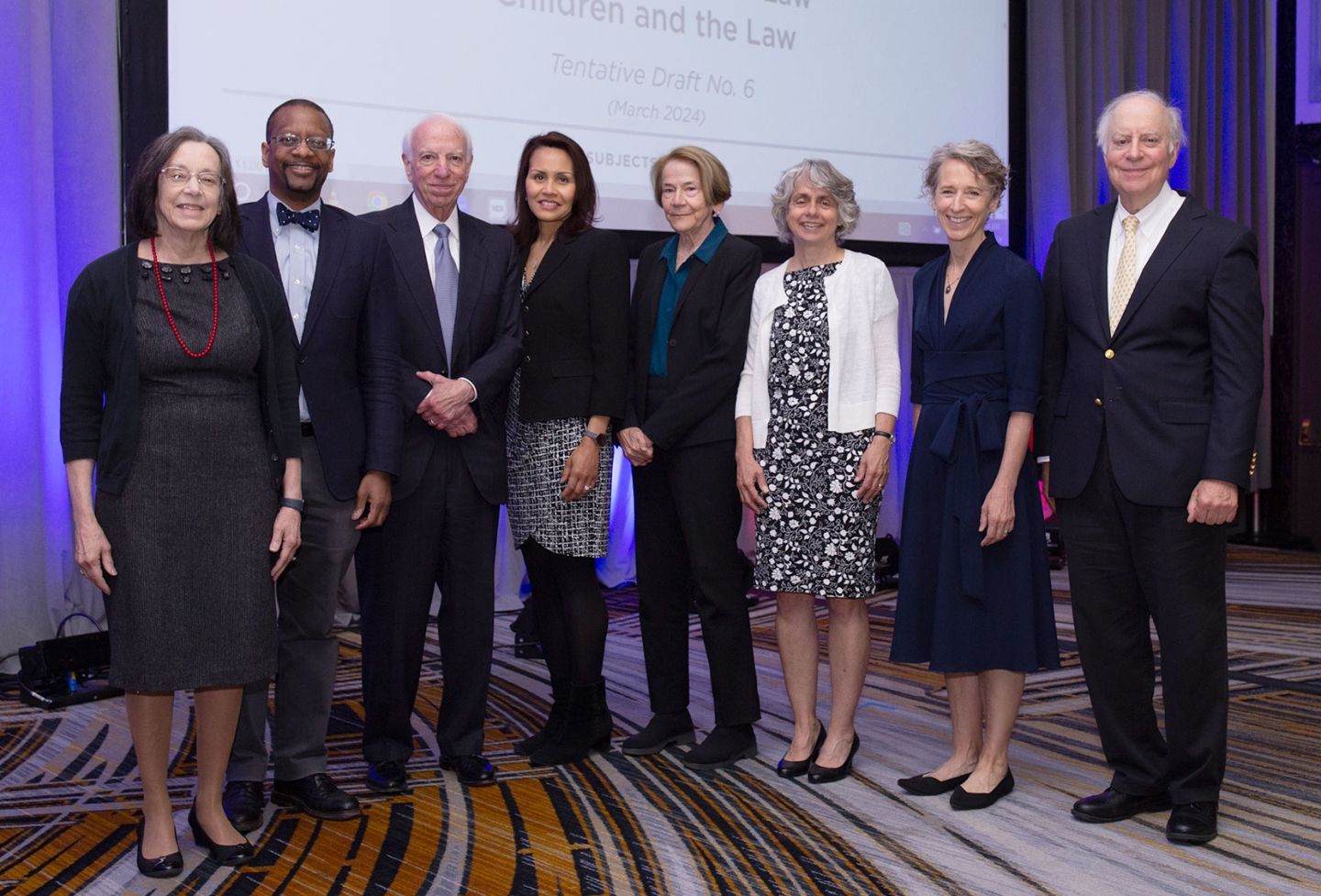U.S. Likely to Change Policy Barring Entry to HIV-Positive Immigrants
 Under international pressure and desiring to bolster its role as leader in the global fight against AIDS, the U.S. government will likely change its immigration and visa policies that now restrict those with HIV from entering the country, said Phillip Nieburg, a senior associate at the Center for Strategic and International Affairs in Washington, D.C. Nieburg, who co-authored a report on the subject, spoke at a Health Law Interest Group lunch Feb. 21.
Under international pressure and desiring to bolster its role as leader in the global fight against AIDS, the U.S. government will likely change its immigration and visa policies that now restrict those with HIV from entering the country, said Phillip Nieburg, a senior associate at the Center for Strategic and International Affairs in Washington, D.C. Nieburg, who co-authored a report on the subject, spoke at a Health Law Interest Group lunch Feb. 21.
Several years ago Nieburg and his colleagues wrote a short paper on why HIV should be removed from the list of eight communicable diseases that cause "inadmissibility" into the United States. "Nobody was interested at that point," he said. But with the Democrats in control of Congress and the Bush Administration willing to admit its program on AIDS relief has been compromised by its immigration policies, that will likely change, he said.
In 1987 Congress passed the Immigration and Nationality Act, which prevented aliens with a "communicable disease of public health significance" from immigrating to the country, and placed restrictions on visitors. The "inadmissibility" standard classified HIV-infected people with the same company as drug traffickers, violators of religious freedom, and child abductors. At the time, Nieburg explained, legislators were concerned about the casual spread of AIDS and the care and cost burdens on the U.S. health system.
Under the law, non-citizens who plan to stay permanently in the United States are given HIV tests and are almost always barred if they are infected. Visa seekers, including short-term and long-term visitors, are asked if they have a communicable disease and are usually blocked from entering if they answer affirmatively.
In 1991 the Centers for Disease Control first recommended removing all but tuberculosis from the list of eight diseases causing inadmissibility (five of which are sexually transmitted infections). When the Department of Health and Human Services (DHHS) moved to strike HIV from the list, several members of Congress strenuously objected. Concerned by the department's stance, Congress passed a law codifying HIV as a communicable disease regardless of any other public health or DHHS determination. President Bill Clinton signed the law, contradicting an earlier promise to remove HIV from the list.
Last December the White House announced they would implement a "categorical waiver" to allow HIV-infected visitors to enter the United States through a "streamlined process," although those changes have not yet been instituted.
"They clearly are taking note of the fact that U.S. leadership on HIV is undermined by our current position," Nieburg said. Even as the Bush Administration has touted an ambitious $15 billion initiative to fight HIV in Africa and the Caribbean, the International AIDS Conferences continues to boycott U.S. venues for its conferences, a position it has held since 1992.
Under the current system, short-term visitors who are HIV positive may receive waivers if they are staying 30 days or less, have sufficient financial resources and health insurance, and are not acutely ill. Immigrants may also receive waivers if they are judged by U.S. Citizenship and Immigration Service (CIS) officials to be at low risk for spreading the disease; if they are a child, parent, or spouse of a citizen or permanent resident; if they have a low risk of becoming an economic burden; and if their care provider is certified by the Health Department and the CDC. Only a couple hundred applicants receive such waivers each year, Nieburg said. However, "it is much easier for refugees to get a waiver." They don't have to show a family link or prove they will not be an economic burden.
Opponents of the law point out that there are many expensive diseases a person can get that aren't on the list of communicable diseases, and "the public health benefits are lacking" now that we know the disease cannot be transmitted through saliva or the air, for example.
Congress and the executive branch have several alternatives to the law as it now stands, Nieburg said. The executive branch could simplify the visa process, allow longer visas without testing, and provide more automatic waivers or expand waiver options. Congress could choose to return disease decisions back to public health experts.
Nieburg said many questions remain about the current system, even if officials choose not to change the process; if applicants test positive they are supposed to receive counseling by health officials, but "no one has a clue about how good the HIV counseling is." Current law also requires the CIS to notify spouses if their spouse has HIV, creating potential complications for privacy rights. Federal laws on HIV and immigration are difficult to find because there is no centralized information source.
Because visa applicants are generally denied admission when they disclose their HIV-positive status, "it's a disincentive for knowing whether you're infected." Still, Nieburg said the government may want to retain the testing component of the current policy.
If the United States waives testing, fewer people will know they are infected. Studies show those that people who know they are infected have a 2 percent risk of transmitting the disease, versus a 10 percent risk if they don't know. "There's clearly a societal benefit to having people know they're infected," Nieburg said, suggesting the United States provide anonymous screening to visa and immigration applicants, so the value of testing is retained.
"HIV's spread involves a lot of legal issues in both treating and preventing HIV," he said. HIV has a long incubation period; it is always fatal; it is easily detected but not often tested; and it is preventable. So far the world has taken a humanitarian, rather than a public policy, approach to dealing with the 40 million people who are infected worldwide. Of all the funds devoted to AIDS, a "huge amount is going into HIV treatment, [and] much less is going for HIV prevention."
Founded in 1819, the University of Virginia School of Law is the second-oldest continuously operating law school in the nation. Consistently ranked among the top law schools, Virginia is a world-renowned training ground for distinguished lawyers and public servants, instilling in them a commitment to leadership, integrity and community service.


